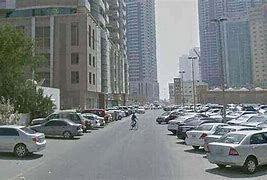ABU DHABI: The largest online exhibition and conference of the oil and gas industry to be hosted by Abu Dhabi as the ADIPEC Virtual Conference bringing together over 5,000 government ministers, global energy leaders, and professionals to assess the collective measures the sector is putting in place to fast-track recovery, post-COVID-19.
It will be hosted by the Abu Dhabi National Oil Company, ADNOC, the ADIPEC Virtual Conference under the patronage of President His Highness Sheikh Khalifa bin Zayed Al Nahyan. It will be held from 9th – 12th November featuring more than 135 sessions, with over 700 renowned speakers and 115 technical sessions, hosting more than 100 companies. It will be a platform for thought leadership that will frame the future oil and gas landscape.
Omar Suwaina Al Suwaidi, Chairman of ADIPEC, said, “Despite facing unprecedented challenges in 2020, our industry has shown remarkable flexibility, commitment and a strong resilience in responding to adverse market conditions.”
The ADIPEC Virtual Conference will focus on how the energy sector is responding and adapting to the COVID-19 pandemic. It will also provide new perspectives on how the industry can build future resilience and engage with the challenges and opportunities of energy transition.
The 10th anniversary of the ADIPEC awards as industry leaders honor the people, projects and ideas that continue to shape the future of the oil and gas industry will be held online in a virtual ceremony on 9th November.
Fatema Al Nuaimi, Chairperson of the ADIPEC Awards and CEO of ADNOC LNG, said that the ADIPEC Award entries demonstrate new ways of working, breaking down barriers and driving positive change during these challenging times. She congratulated the winners.
Also, the technical conference organized by the Society of Petroleum Engineers will bring together the energy and non-energy technical leaders, who are at the forefront of the post-pandemic economic recovery. The ADIPEC Virtual Downstream Technical Conference will explore the role of Artificial Intelligence and digitalization in refining and petrochemicals; decarbonisation; the future workforce; energy security, efficiency and management and the future impact of the downstream on the circular economy.
Source: wam.ae































